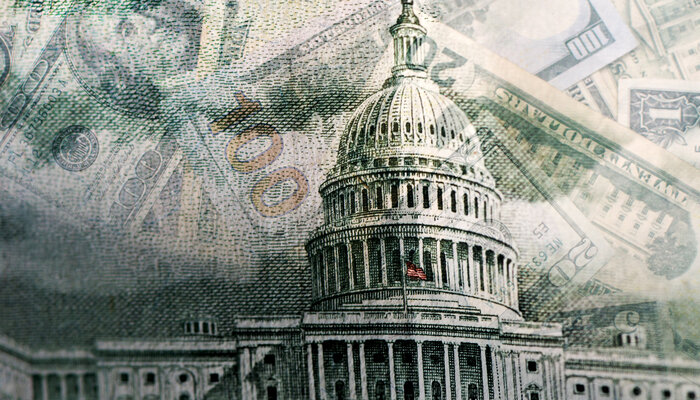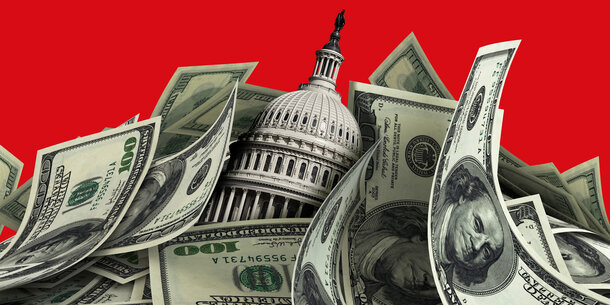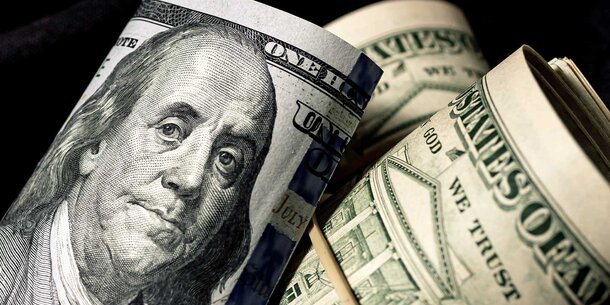21. The funding of ballot measures continued to be a smorgasbord of unlimited money.
A federal judge blocked a new Florida new law (S.B. 1890) that imposed a $3,000 contribution limit to ballot initiative campaigns. And the Federal Election Commission decided that foreign money can be spent in ballot measure fights. This foreign-money loophole would be closed by Sen. Kirsten Gillibrand’s (D-NY) bill, the Stop Foreign Interference in Ballot Measures Act, or Sen. Sheldon Whitehouse’s (D-RI) DISCLOSE Act.
20. Once a big political spender, the National Rifle Association had a tough year.
The NRA declared bankruptcy and then tried to move to Texas, likely in an effort to dodge enforcement actions that were proceeding against it from the New York State attorney general. A bankruptcy judge dismissed the case, declaring that it was not filled in good faith. And to top that off, Giffords, the gun-control group founded by former Arizona congresswoman Gabby Giffords, filed a federal lawsuit accusing the NRA of violating campaign finance laws since 2014.
19. The rich always throw the new boss a fete, no matter the party.
President Joe Biden’s inaugural raised $61 million, which was provided by 18 billionaires and many corporate donors, among others. Many of these corporate donors like Pfizer, AT&T, and Boeing had previously given to President Donald Trump’s inaugural in 2017, which incidentally is still under investigation by the D.C. attorney general.
18. Some campaign treasurers need to improve their math skills.
Federal candidates report their fundraising and spending to the FEC, but in some cases, the numbers did not add up. Rep. Jim Jordan’s (R-OH) campaign faced questions from the FEC over accounting discrepancies that exceed $100,000.
17. Campaign funds are not personal piggy banks.
You might think after the prosecutions of former congressmen Duncan Hunter (R-CA) and Jesse Jackson Jr. (D-IL) for personal use of campaign funds, the message would have sunk in by now that federal candidates cannot use campaign money for lifestyle perks. But in August, the FEC had to ask Rep. Lauren Boebert (R-CO) to explain the apparent personal use of her campaign funds to allegedly pay for rent and utilities. And demonstrating how serious personal use of campaign funds is, in September, Milwaukee City Council member Chantia Lewis, a Democratic candidate for U.S. Senate, was charged with a series of campaign finance violations for allegedly using donations and improper travel reimbursements on more than $21,000 in car payments, family trips, and a worship conference. Also in September, former Massachusetts state representative David M. Nangle (D) was sentenced for illegally using campaign funds to pay for his personal expenses.
16. Big offices still cost big money.
There was at least $84 million spent in the failed effort to recall California Gov. Gavin Newsom (D). At least $76 million was spent in the New Jersey governor’s race where the Democratic incumbent, Phil Murphy, raised more money and won reelection. But the Virginia governor’s race took the cake, costing at least $148 million. Republican Glenn Youngkin raised slightly more than Democrat Terry McAuliffe and won slightly more votes to take the governor’s mansion.
15. The worst places got worse.
Florida, which already wasn’t great in terms of money in politics, got rid of low local contribution limits for localities by passing a state law that displaced good local campaign finance ordinances.
14. The fallout from Russian interference in the 2016 election is still generating criminal cases.
The Justice Department charged Roy Wead of Florida, an advisor to multiple presidential campaigns, and Jesse Benton of Kentucky, who previously worked as a campaign manager for two U.S. Senate campaigns and one presidential campaign, with conspiracy to solicit an illegal campaign contribution by a Russian foreign national.
13. Not every campaign finance matter from the 2016 election was resolved.
Time ran out on the statute of limitations for charging Donald Trump for the hush fund payments to Stormy Daniels that landed Trump lawyer Michael Cohen in jail. October 27 was the five-year anniversary of when Trump had Cohen secretly pay hush money to the porn star.
12. Sen. Ted Cruz (R-TX) is doing his best to crush campaign finance reform.
The Supreme Court agreed to hear FEC v. Ted Cruz for Senate. The question in the case is whether the federal loan-repayment limit for candidates violates the Free Speech Clause of the First Amendment. The case gives the Roberts Supreme Court another chance to further hobble campaign finance law, which groups like the Brennan Center have advocated against.
11. Some campaign expenditures raise more eyebrows than others.
Rep. Matt Gaetz (R-FL) has been under scrutiny ever since a close associate, Joel Greenberg, was arrested and began cooperating with investigators who are looking into an alleged sex trafficking ring. Those looking at Gaetz’s campaign expenditures have discovered that $825,000 has gone to a PR firm called Logan Circle Group, $50,000 went to legal fees to the same lawyer who represented Jeffrey Epstein, and $20,000 went to a company run by Roger Stone.
10. It’s not all bad news: small donors made a splash in the New York City elections.
2021 was the year for NYC elections and small donors gave record amounts to candidates for City Council and citywide offices like mayor or comptroller. The election also resulted in the most diverse City Council ever, better reflecting the complexity of New York City.
9. In more good news, shareholders got a new useful tool to respond to corporate political spending.
The new administration brought in new leadership across the federal government. The Securities and Exchange Commission changed the rules for shareholder proposals. This change makes it easier for shareholders to raise social issues like corporate political spending or lobbying expenditures for a vote on corporate proxies, which are tracked by groups like the Center for Political Accountability and Sustainable Investments Institute.
8. Contribution limits are more vulnerable.
Following a Supreme Court decision in Thompson v. Hebdon, the Ninth Circuit Court of Appeals ruled that some of Alaska’s campaign limits violate the First Amendment. The restrictions included a $500 per year contribution limit from individuals to candidates, a $500 limit from individuals to election-related groups, and a $3,000 cap from out-of-state contributors to candidates. However, the Ninth Circuit did uphold the $5,000 limit from a political party to a candidate.
7. Campaign donations can end up in the hands of criminal defense attorneys.
The RNC has agreed to pay some of Donald Trump’s legal fees related to the criminal investigations into the Trump Organization by the offices of the Manhattan district attorney and New York State attorney general. This isn’t new, as Trump had the RNC foot legal bills for the Russia investigation. But this is different because the legal problems at issue at the Trump Organization were allegedly created before he was a federal candidate.
6. There were pardons for infamous campaigners.
Elliott Broidy, who once served as finance chairman of the Republican National Committee, was pardoned by President Trump in his last days in office. Broidy had been charged as acting as an unregistered foreign agent who tried to interfere in a federal investigation into the 1MDB Malaysian state fund fraud. He pleaded guilty. Broidy was pardoned the same day that Trump pardoned his former 2016 campaign manager, Stephen Bannon, who was charged with bilking supporters of an effort to build a wall along the southern border.
5. Donors should beware of the pre-checked box.
In April, the New York Times exposed the Trump campaign’s dodgy 2020 practice of pre-checking boxes on its campaign contribution solicitation pages, signing donors up for recurrent donations without them realizing it. Even after this was roundly criticized, Trump’s pre-checked box scam continued and was expanded by other Republicans. As a result of his fundraising efforts, Trump has over $100 million in his political war chest.
4. Donors also need to beware of straight up scammers.
It’s a jungle out there. As the price tag for elections continues to rise, so too does the opportunity for fraudsters. The Justice Department arrested three men — Matthew Nelson Tunstall, Robert Reyes Jr., and Kyle George Davies — for running scam PACs that allegedly tricked donors of $35 million.
3. Foreign money is still illegal in American elections.
Lev Parnas (a former associate of Rudy Giuliani) was convicted of violating federal campaign finance laws for, among other things, hiding the foreign source of money that he and his associate Igor Fruman gave to several American politicians, including Florida Gov. Ron DeSantis (R) and Sen. Rick Scott (D-FL).
2. Eventually bribery charges catch up to even the most powerful.
In June, the Ohio House expelled State Rep. Larry Householder (R), who stands accused in a federal indictment of accepting bribes from First Energy in exchange for actions on legislation when he was the speaker of the Ohio House.
1. Corporate donors keep giving despite the January 6 insurrection.
The attack in the Capitol was bad enough that some corporations said they would suspend their donations to the sedition caucus. But a few months later, most of the corporations who made such pledges found ways to give money to the same people either directly or indirectly through intermediaries like leadership PACS. Hopefully in the new year, corporations will back democracy more robustly, including by supporting the passage of the Freedom to Vote Act and John R. Lewis Voting Rights Advancement Act. Well, a girl can dream.



